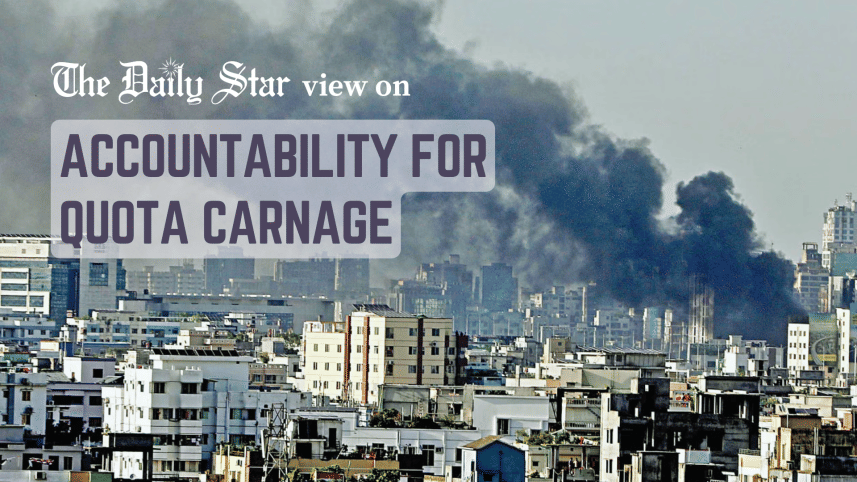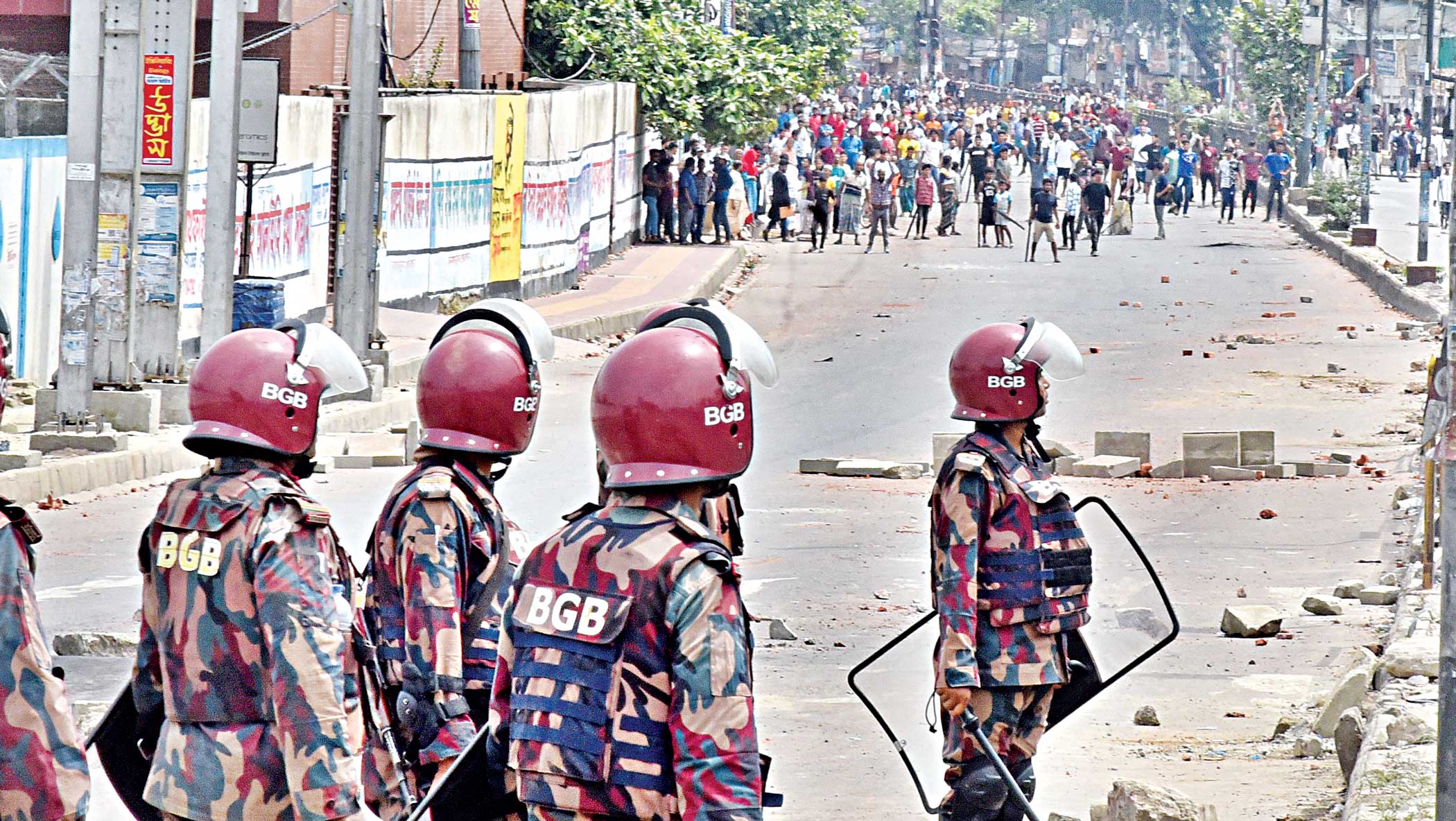Time for a deeper reflection on the violent clashes

It is natural to be consumed by the sheer number of people killed during the recent clashes—at least 146, as confirmed by The Daily Star, and higher by some other estimates. Tragedies like this leave behind a crippling sense of doom and hopelessness, especially with restrictive measures like curfew and internet shutdown isolating us not only from the outside world but also each other. But while we try to process all this, it is crucial to take stock of other losses suffered, notably through the destruction of key public infrastructures, which we condemn in unequivocal terms. People are already having to suffer for this, with key services disrupted or discontinued. Images showing charred remains of so many government establishments and installations indicate that any recovery from the fallout will take months, if not years.
The question is, how should we go about this unprecedented crisis in our life? While attempts are underway to bring back some semblance of normalcy, including through restoring internet partially, a key concern relates to establishing accountability for what happened so far. The government appears to have made up its mind, even before investigations. It claims that BNP-Jamaat men are responsible for the destruction and arson attacks, with the PM issuing a stern warning about not sparing them "this time." But any blanket accusation shrinks the space for a nuanced reading of the situation. Is it possible that what's really to blame is a combination of political foul play and outbursts of popular anger? Would the situation become so uncontrollable if the government handled the initial protests more judiciously, without resorting to force? And is accountability at all possible without critically probing the role of security forces, especially the intelligence services?
It is important to separate the movement from the violence that has ensued, however. As experts have pointed out, what facilitated the unholy sync between the two is the "zero-sum game of politics" which leaves little space for opposition. In such a climate, subversive forces may capitalise on public discontent over growing economic hardships, governance deficits, and the general atmosphere of intimidation and insecurity against free speech and freedom of association. People want their grievances to be heard and acted upon. But intransigence and non-responsiveness, denial of reality, or use of disproportionate force in the event of protests may be counterproductive for the authorities in the end.
What we understand from analyses like this is that it is possible, even crucial, to see the recent clashes from more viewpoints than one (the government's). As we write this, at least 2,657 people have been arrested across the country over the last four days. In Dhaka, at least 133 cases have been filed. This trend will likely continue as the nation searches for answers. But before this again becomes a one-way road to political blame game and suppression of rivals, it is vital that the authorities try to see the broader circumstances in which those indiscriminate killings and destructions occurred, and ask whether it was possible to prevent them. Otherwise, we may continue to be at risk of such meltdowns.



 For all latest news, follow The Daily Star's Google News channel.
For all latest news, follow The Daily Star's Google News channel. 
Comments